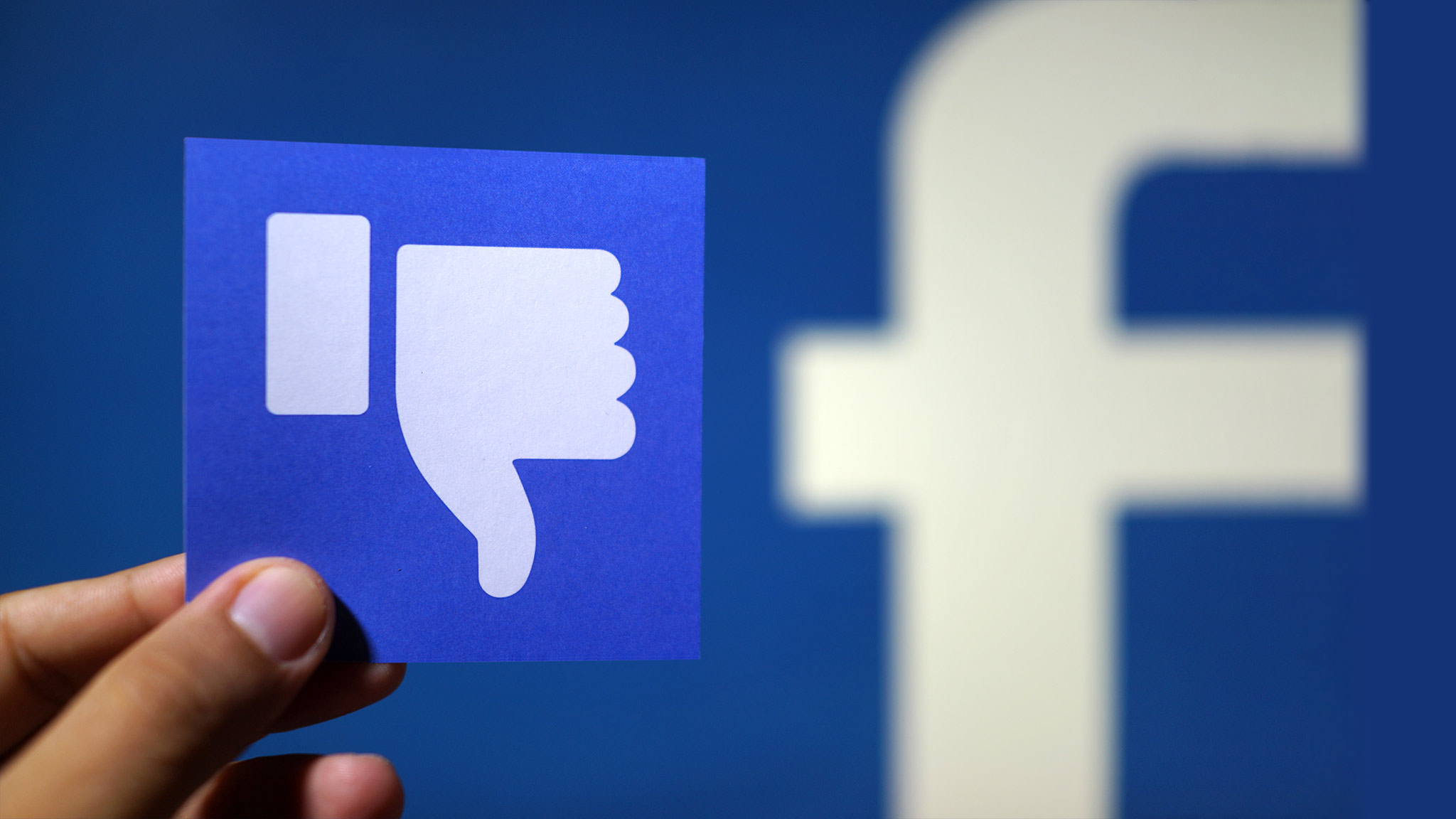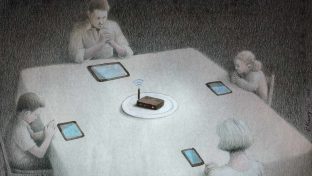Facebook Loneliness: Lots Of “Friends” But No Real Connection

Facebook could very well be making us incredibly lonely despite its original intentions, further contributing to the current epidemic of loneliness with every swipe through our newsfeeds.
- Facebook users considered just 28% of their Facebook friends to be genuine ones, and 39% of those same users said they are connected to people they have never even met in person.
- If you’re not going to use social media actively, experts advise you to use it less often, rather than aimlessly scrolling and comparing your life to those belonging to people you see on Facebook.
Struggling with loneliness or having a mental health crisis?
- Suicide Prevention Lifeline: 1-800-273-TALK (8255); Deaf or hard of hearing dial 711 before the number or connect via online chat
The average Facebook user has hundreds of friends.
That’s a lot of people.
If you invited all those folks to your birthday party, that would be quite a memorable event.
But tragically, according to research, we would only trust four of those friends in a crisis and the way we use Facebook has changed in recent years.
When it was founded in 2004, Facebook’s mission was to “give people the power to build community and bring the world closer together. People use Facebook to stay connected with friends and family and to share what matters to them.”
And when the social media platform first arrived on the scene, that is exactly what I did.
I couldn’t wait to add friends to my profile — the more the merrier. At the time, your friend count on Facebook was directly linked to your overall popularity.
“Did you see that so and so has over a thousand friends on Facebook!”
I posted pictures, messaged friends, updated my status regularly, stalked people I’d just met.
Everyone did!
These days, however, Facebook is increasingly being used in a much more passive way that’s leaving users feeling disconnected from each other, particularly for those belonging to Gen Z.
We scroll absentmindedly through our newsfeeds, lurking somewhere in the background to get a glimpse of a wedding we weren’t invited to or a baby we’ll never meet.
Facebook Is No Longer Working As Intended
Over a decade and a half after Facebook hit the digital airwaves, its landscape has vastly changed.
My profile lies dormant and neglected.
At the beginning of 2021, Facebook had more than 2 billion active users, but its popularity is decreasing and individual activity levels have been reduced.
I use the platform now solely to peer into the lives of people I don’t speak to or see.
I don’t post pictures. I don’t update my status. And I don’t feel good when I’m on it.
Facebook is no longer a social media platform for connectivity and it has become a very lonely place indeed because people don’t use it in the way that it was originally designed to be used.
To make matters worse, passive Facebook use — reading and looking at other users’ posts without responding or engaging — is now the norm.
This is leaving us feeling increasingly isolated from one another. When we use social media passively, we can’t help but feel disconnected from the people we are “friends” with.
We feel left out because we weren’t involved in the event they attended, the vacation they went on, or the party they hosted.
Their lives seem more exciting and more fulfilling than our own in comparison.
Therefore, instead of reaching out to them and connecting to quell our feelings of isolation, we retreat further, believing that they are far too busy and popular to engage with us.
How To Combat Facebook Loneliness
If your time spent on Facebook is leaving you feeling isolated and lonely, there are things you can do.
- Take stock of how you use the platform.
Research suggests that the way we use Facebook influences how we feel.
If you are a passive user who doesn’t engage with the posts that you see — or if you behaved the same way with friends in the real world, for that matter — you will feel lonely and cut-off from that social circle.
I often find that I scroll through my newsfeed in a trance-like state, not even fully aware of what I am doing. And when I finally come to my senses, I feel so frustrated at the time I have wasted.
- Remember that what you see isn’t always real.
One thing that is important to remember is that what most people post on social media is a highly-edited and polished snapshot featuring only the best bits of their life.
No one uploads photos of themselves unloading the dishwasher or doing laundry. You won’t see someone’s tear-stained face after they just had an explosive argument with their spouse.
You also won’t see the cellulite or stretch marks on a bikini-clad body at the beach, thanks to an array of skillfully-crafted photo filters that let people airbrush every blemish away with the click of a button.
Those lives still exist — the mundane, the fights, the body imperfections, the insecurities, the lonely birthdays — even if one “flawless” snapshot says otherwise.
So if you feel as though your life is just not as exciting as your “friends” on Facebook, try to take their posts with a grain of salt.
- Take a break from Facebook and enjoy your life.
The next time you find yourself scrolling through your newsfeed, close down the app, walk away from your laptop, and try calling a friend instead.
Or, even better, meet one face-to-face. Have an actual, real conversation with someone.
Those conversations aren’t filtered or edited — and you won’t find them anywhere on your newsfeed.
Closing Thoughts
While Facebook’s original intent was to bring people closer together, more than a decade and a half later, it is having the opposite effect.
These days, most of us passively scroll through our newsfeeds without really interacting with our “friends” on the platform.
If the use of Facebook is contributing to your feelings of loneliness, it’s okay to walk away from it.
You’ve got a real life that’s waiting for you, anyway.
Editor’s Note: This article is part of The Roots Of Loneliness Project, the first-of-its-kind resource that comprehensively explores the phenomenon of loneliness and over 100 types we might experience during our lives.
Find Help Now
If you’re struggling with loneliness while scrolling on Facebook, we’ve put together resources to meet you wherever you are — whether you want someone to talk to right now, or are looking for longer-term ways to help ease your loneliness.
- Suicide Prevention Lifeline: 1-800-273-TALK (8255); Deaf or hard of hearing dial 711 before the number or connect via online chat
- Resources & Emotional Support For Loneliness
- Volunteer & Pet Adoption Opportunities






